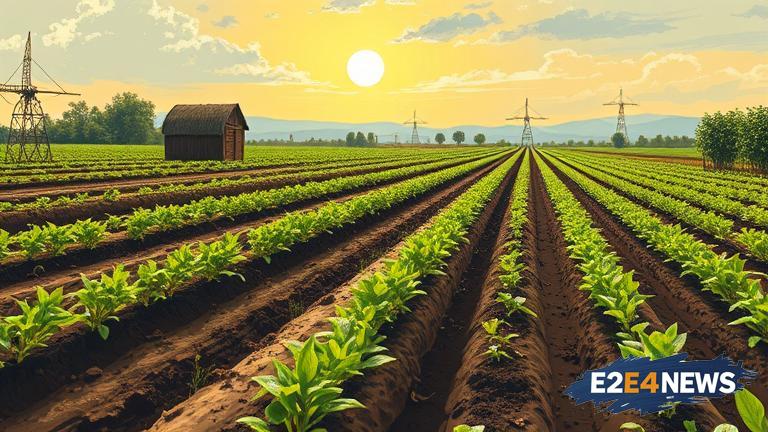The agricultural sector is undergoing a significant transformation, driven by innovative technologies and methods that aim to increase production, efficiency, and sustainability. In recent years, there has been a growing focus on leveraging technology to improve farming practices, reduce waste, and promote eco-friendly methods. One of the key areas of innovation is precision agriculture, which involves using advanced sensors, drones, and satellite imaging to monitor and manage crops. This approach enables farmers to optimize irrigation, fertilization, and pest control, resulting in higher yields and reduced environmental impact. Additionally, the use of artificial intelligence and machine learning algorithms is becoming increasingly popular in agriculture, allowing for more accurate predictions and decision-making. Another area of innovation is vertical farming, which involves growing crops in vertically stacked layers, often in indoor environments. This method offers several benefits, including increased crop yields, reduced water consumption, and minimized land use. Furthermore, the development of new crop varieties and breeding techniques is also playing a crucial role in boosting agriculture production. Scientists are working on creating crops that are more resilient to climate change, diseases, and pests, which will help to ensure global food security. The use of biotechnology is also becoming more prevalent, with genetically modified crops being developed to improve nutritional content and reduce pesticide use. Moreover, the integration of renewable energy sources, such as solar and wind power, is helping to reduce the carbon footprint of agricultural operations. The adoption of innovative technologies and methods is not only benefiting farmers but also contributing to the overall sustainability of the agricultural sector. As the global population continues to grow, it is essential to find ways to increase food production while minimizing environmental impact. The innovative approaches being developed and implemented in the agricultural sector are helping to address this challenge. In Canada, for example, the government is investing in initiatives that support the development and adoption of innovative agricultural technologies. The country is also home to a number of leading agricultural research institutions and companies that are driving innovation in the sector. Overall, the future of agriculture looks promising, with innovation and technology playing a vital role in shaping the industry. As the sector continues to evolve, it is likely that we will see even more exciting developments and advancements in the years to come.
